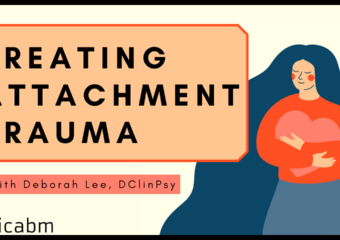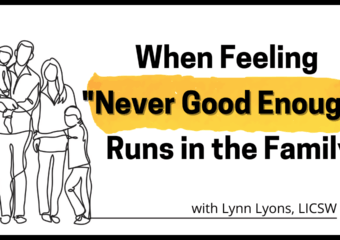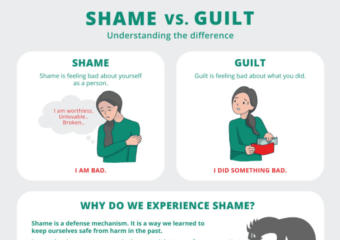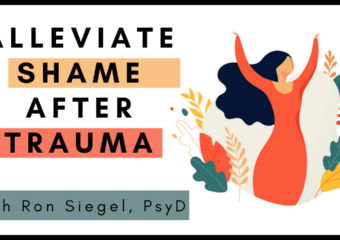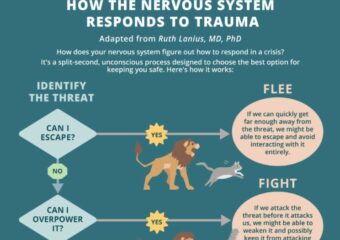Attachment trauma can leave clients on constant alert for threats . . . . . . which can make processing traumatic memories incredibly difficult. So in the video below, Deborah Lee, DClinPsy, shares how she worked with one client who was severely neglected in her childhood. She’ll walk you through the imagery exercise she used […]
How Feeling “Never Good Enough” Can Get Passed Down Through Generations, with Lynn Lyons, LICSW
Many times, when a client reports feeling unworthy, they may be able to pinpoint specific instances when they received messages that they weren’t good enough. But there are also indirect ways that this message can be conveyed and passed across generations – even in loving, connected families. In the video below, Lynn Lyons, LICSW, will […]
[Infographic] Shame vs. Guilt – A Client Handout
You’ve probably heard clients use guilt and shame interchangeably to describe their feelings. But as practitioners, we know that shame and guilt are two very different emotions, each with its own purpose and path to healing. That’s why we created this free infographic designed to help clients understand the key differences between these two emotions […]
A Simple Metaphor to De-Shame a Client’s Trauma Response, with Ron Siegel, PsyD
After a traumatic event, a client might feel deeply ashamed by how they responded to the situation. Perhaps they froze and now blame themselves for not fighting back. Or, maybe they ran away, but now regret not standing up for themselves. As clinicians, we’re able to recognize that these reactions happen at the level of […]
[Infographic] – How the Nervous System Responds to Trauma
It can often be difficult for trauma survivors to understand how or why they reacted a certain way during a traumatic experience. Instead of seeing their trauma response as the result of a split-second, unconscious decision made by their nervous system, your client may blame themself for not reacting differently. This can be especially true […]
